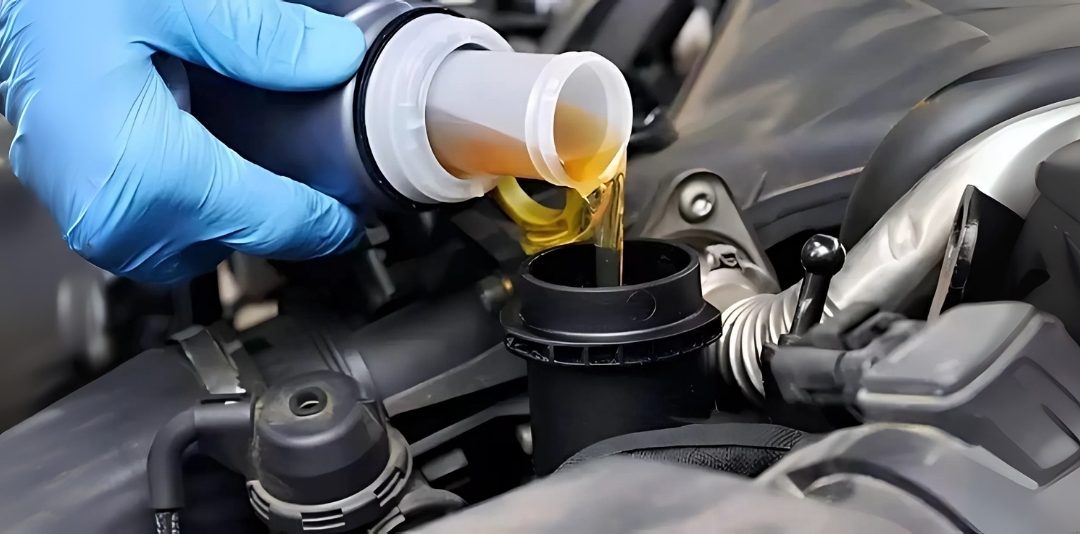Regular oil changes are one of the most important steps in keeping your vehicle’s engine healthy. But how often should you change your oil, especially if you live in a city like Brampton, Canada? While many drivers rely on old rules like “every 5,000 to 8,0000 km,” the truth is more nuanced. Climate, driving habits, and your vehicle’s age all play a role.
In this article, we’ll break down the key factors that influence oil change frequency, share expert insights from Valvoline Express Care, and help you keep your car running smoothly all year round.
Why oil changes matter more than you think
Motor oil is the lifeblood of your engine. It lubricates moving parts, reduces friction, and helps regulate temperature. Over time, however, oil breaks down and loses its ability to protect the engine. Without timely changes, you risk:
- Reduced fuel efficiency.
- Engine overheating.
- Buildup of harmful sludge.
- Costly repairs from premature wear.
Keeping up with your oil changes is one of the simplest and cheapest ways to extend your vehicle’s life. If you want to explore what makes high-quality oil service different, you can check out our different product features and benefits.
How Brampton’s climate affects oil change frequency
Brampton experiences a mix of cold winters and hot, humid summers. These temperature extremes can affect your engine oil in different ways:
- Cold winters make oil thicker, making it harder for your engine to circulate it effectively during startup.
- Hot summers can cause oil to thin and degrade faster, especially under heavy driving loads.
Because of these seasonal shifts, Valvoline experts often recommend more frequent oil checks and possibly shorter intervals than drivers in milder climates.
Driving habits that impact oil life
It’s not just the weather, how you drive also determines how often you need an oil change. You may need more frequent oil changes if you:
- Take frequent short trips (less than 8 km).
- Drive in stop-and-go traffic daily.
- Tow trailers or carry heavy loads.
- Drive in dusty or construction-heavy areas.
Brampton’s busy roads and rush-hour congestion mean many local drivers fall into the “severe driving” category, which typically calls for more regular oil changes than the manufacturer’s maximum interval.
Conventional vs. Synthetic Oil – Does it change the interval?
The type of oil you use also plays a big role in determining change frequency.
- Conventional oil: Usually recommended every 5,000–6,000 km or 3–4 months.
- Full synthetic oil: Can last 8,000–10,000 km or up to 6 months, depending on driving conditions.
- Synthetic blend: Falls somewhere in between.
While synthetic oils cost more upfront, they provide better engine protection, especially during Brampton’s cold starts in winter and hot summer traffic.
Manufacturer recommendations vs. real-world conditions
Your vehicle’s owner’s manual will have a recommended oil change interval. However, these recommendations are often based on ideal driving conditions, which don’t always match real life in Brampton.
For example, if your manual says 10,000 km between changes but you mostly drive short trips in winter, the actual safe interval might be closer to 6,000–8,000 km. That’s why expert advice tailored to your driving habits is valuable.
Expert insights from Valvoline Express Care
At Valvoline Express Care, we don’t believe in a “one-size-fits-all” schedule for oil changes. Instead, our technicians:
- Inspect your oil quality during each visit.
- Consider your vehicle’s mileage, age, and usage patterns.
- Take into account seasonal changes in Brampton.
- Recommend the right oil type for your engine.
This personalized approach ensures you’re not changing your oil too often (wasting money) or too late (risking damage). If you want to know why many Brampton drivers trust our service, you can learn more about why choose Valvoline Express Care for oil change.
Signs you might need an Oil change sooner
Even if you’re tracking your mileage, some signs mean you shouldn’t wait until your next scheduled change:
- Engine oil looks dark and gritty.
- Your “check engine” or “oil change” light comes on.
- You notice louder engine noise than usual.
- There’s a burning oil smell inside your car.
If you experience any of these, it’s best to have your oil checked immediately.
Frequently Asked Questions
Q: Is it bad to change my oil too often?
A: While it’s not harmful to your engine, changing oil more often than necessary can be wasteful.
Q: Can I switch from conventional to synthetic oil?
A: Yes, most vehicles can make the switch, and it can improve protection in extreme temperatures.
Q: Does my driving style really make that much difference?
A: Absolutely. Short trips, towing, and stop-and-go traffic all shorten oil life.
Q: Can Valvoline Express Care remind me when it’s time?
A: Yes, we keep service records and can send reminders based on your last visit and driving habits.
Final thoughts
Oil changes are a small investment that delivers big returns in performance, fuel efficiency, and engine life. For Brampton drivers, climate extremes, traffic conditions, and individual driving habits all play a role in how often you should change your oil.
Rather than sticking to a generic schedule, it’s best to follow expert recommendations tailored to your needs. At Valvoline Express Care, we combine premium products with professional advice to help you get the most out of every oil change. Don’t wait until your engine tells you it’s time


